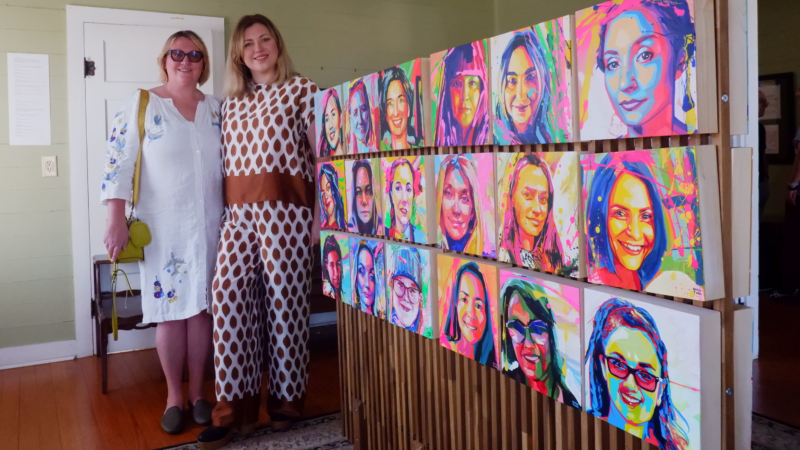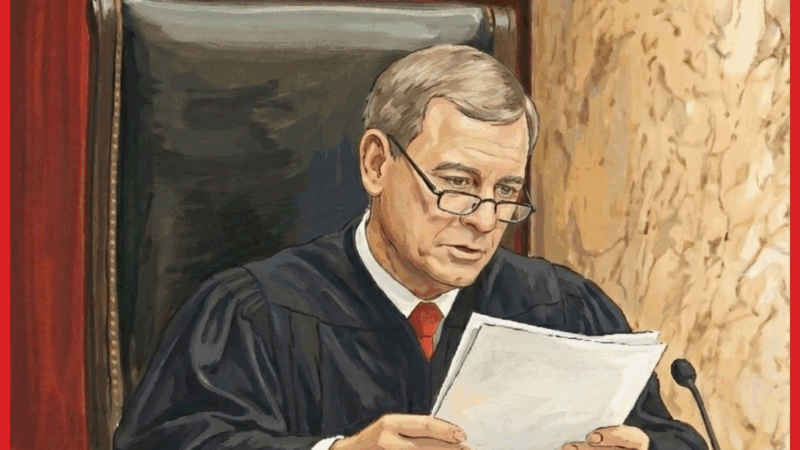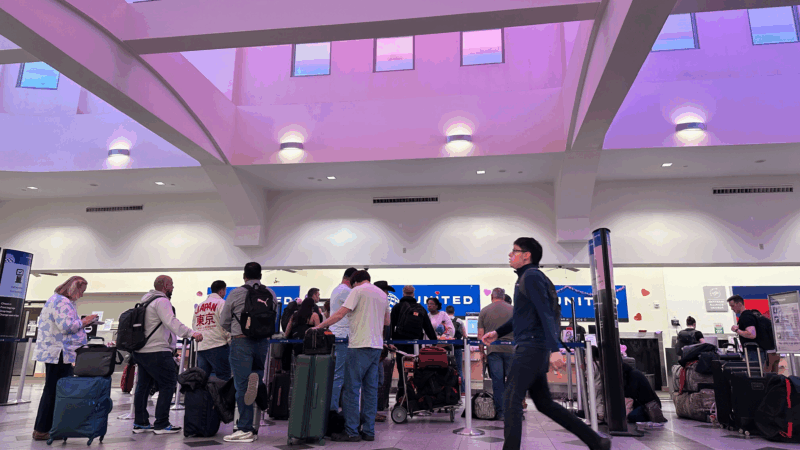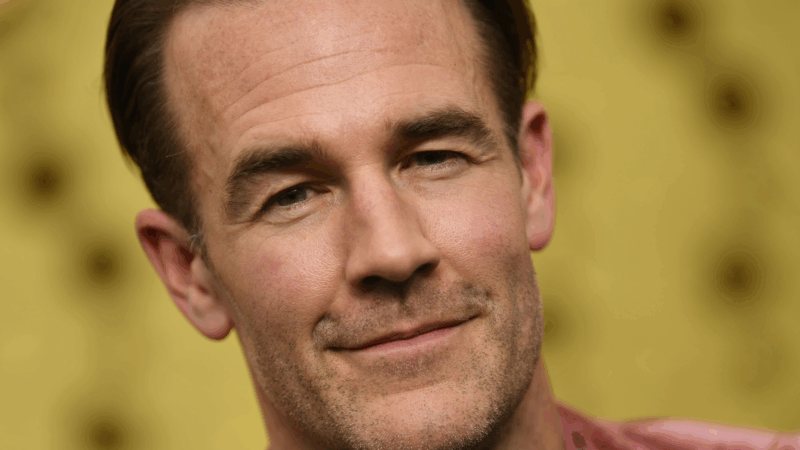Ukrainians in the U.S. use connections and their art to support the war effort
LEANDER, Texas — For one afternoon in this suburb of Austin, an 1860s farmhouse was transformed into a Ukrainian cultural center. Vendors sold Ukrainian art and traditional clothing while performers sang Ukrainian pop music. A bake sale featured homemade varenyky, a dumpling similar to the Polish pierogi.
The main attraction at the “Many Faces, One Force” exhibit was artist Iana Nikutina’s collection of 77 paintings of Ukrainian and American women from Central Texas. Nikutina said the brightly colored pop art portraits highlight the ways women support Ukrainians.
“A lot of women teach children, some volunteer in different organizations, some help the Ukrainian army,” Nikutina said. “And I wanted to appreciate these women for their work.”
The United States is home to more than 1 million people of Ukrainian ancestry, according to the U.S. Census’ most recent data.
As Russia’s war in Ukraine passes the three-year mark, some work to reinvigorate public awareness with events like the “Many Faces, One Force” exhibit.
Others contribute to the almost $4 billion Ukraine receives in yearly remittances. Some feel uncertain about President Trump’s approach to the Ukraine–Russia conflict and say they need to support their homeland now more than ever.
Composer and pianist Alex Syedin performed at the exhibit, his way to support his friends and loved ones back in Ukraine.
“What can we do as artists?” Syedin asked. “I decided to create a solo piano album about what’s going on in Ukraine and it’s called Out of Homeland.”
Without using a single word, Out of Homeland conveys the range of emotions Syedin feels about the conflict. The song “Far From Home” opens with a somber, reflective tone before building to a hopeful crescendo.
The album ends with “Fight for the Future,” which features dramatic arpeggios dancing around a bassy chord progression — evoking cries for peace ringing out over footsteps of a protest march.
Syedin came to the U.S. as a refugee in 2022, thanks to a Biden-era Uniting for Ukraine program, which was implemented after Russia’s full-scale invasion of Ukraine that year. Syedin said he feels safe on American soil but now he wants to help his musician friends back in Ukraine.
“For example, if I need to record some cellists or violins, I send all of that to my friends in Ukraine,” Syedin said. “I know they need to have a job too.”
Although some of his friends died in the conflict, Syedin said his music helps him stay hopeful that peace will come soon.
“It’s so hard to think about what I can do,” Syedin said. “I help by my music.”
Organizer Kate Voinova said the event also connects local Ukrainian Americans with the broader Central Texas community.

Fears of Russian influence
Voinova works with Liberty Ukraine, an Austin-based nonprofit organization that raises money to buy protective equipment for Ukrainian soldiers. Liberty Ukraine also contributes funding to a children’s hospital in Lviv, Ukraine, so it can accommodate new patients evacuating from the front lines.
Another one of the group’s programs sends the children of soldiers who died in the war to a therapy camp.
As the war enters its fourth year, Voinova is confident that Ukraine will reclaim its prewar borders. But, after living in the U.S. since 2019, Voinova worries Americans are becoming more apathetic about the Ukrainian cause.
“Our Ukrainian part already accepted that the war is happening and we need to somehow resist,” Voinova said. “Now my American part is really worried about what’s going on after Russian influence is increasing in the United States.”
Growing up in Ukraine in the 1980s and ’90s, Voinova said she never heard the Ukrainian language on the radio or saw Ukrainian movies in the theater. Everything was Russian.
“I know how Russian influence affects a country,” Voinova said. “It’s something you really don’t want to live in.”
AI brings Supreme Court decisions to life
Like it or not, the justices are about to see AI versions of themselves, speaking words that they spoke in court but that were not heard contemporaneously by anyone except those in the courtroom.
These monks’ walk for peace captivated Americans. It ends this week
A group of Buddhist monks walked from Fort Worth, Texas, to Washington, D.C., in the name of peace. The 108-day pilgrimage captivated Americans.
The airspace around El Paso is open again. Why it closed is in dispute
The Federal Aviation Administration abruptly closed the airspace around El Paso, only to reopen it hours later. The bizarre episode pointed to a lack of coordination between the FAA and the Pentagon.
‘Dawson’s Creek’ star James Van Der Beek has died at 48
Van Der Beek played Dawson Leery on the hit show Dawson's Creek. He announced his colon cancer diagnosis in 2024.
A Jan. 6 rioter pardoned by Trump was convicted of sexually abusing children
A handyman from Florida who received a pardon from President Trump for storming the U.S. Capitol on Jan. 6, 2021, was convicted on state charges of child sex abuse and exposing himself to a child.
A country-pop newcomer’s debut is your reinvention album of 2026
August Ponthier's Everywhere Isn't Texas is as much a fully realized introduction as a complete revival. Its an existential debut that asks: How, exactly, does the artist fit in here?






